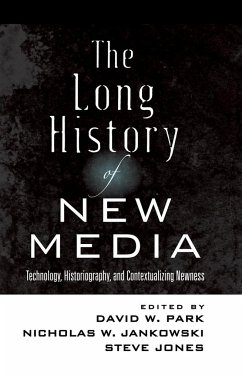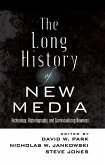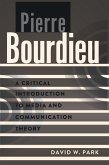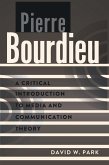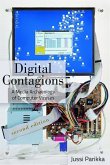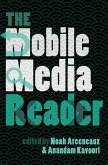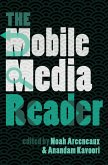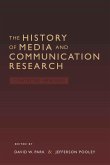This volume examines the role of history in the study of new media and of newness itself, discussing how the 'new' in new media must be understood to be historically constructed. Furthermore, the new is constructed with an eye on the future, or more correctly, an eye on what we think the future will be.
Chapters by eminent scholars address the connection between historical consideration and new media. Some assess the historical descriptions of the development of new media; others hinge on the issue of newness as it relates to existing practices in media history. Remaining essays address the shifting patterns of storage at work in media inscription, as they relate to the practice of history, and to the past and contemporary cultural formations. Together they offer a ground-breaking assessment of the long history of new media, clearly recognizing that the new media of today will be the traditional media of tomorrow, and that an emphasis on the history of the future sheds light on what this newness can be said to represent.
Chapters by eminent scholars address the connection between historical consideration and new media. Some assess the historical descriptions of the development of new media; others hinge on the issue of newness as it relates to existing practices in media history. Remaining essays address the shifting patterns of storage at work in media inscription, as they relate to the practice of history, and to the past and contemporary cultural formations. Together they offer a ground-breaking assessment of the long history of new media, clearly recognizing that the new media of today will be the traditional media of tomorrow, and that an emphasis on the history of the future sheds light on what this newness can be said to represent.
«Taken together, these fresh and inventive essays by a distinguished group of communications scholars document the often surprising ways in which recent innovations in communications technology have altered our understanding of the history of new media in the recent and not so recent past. Stimulating and provocative.» (Richard R. John, Columbia University)
«Although the title seems oxymoronic - how can 'new' media have such a long history? - the essays in this book will convince you that historical work on new media is indispensable to a sound understanding of the emerging media environment. The book brings a new generation of historical researchers together with a more familiar cast of senior scholars in a collaboration marked by both deep archival research and theoretical sophistication. It offers a snapshot of the state of historical scholarship on new media. Read this book to know who's who in this emerging field. Although the individual essays seem to study very different objects, they tend to come together around issues of the social and historical construction of technologies and media. Any student of the media, new or old, historical or contemporary, will enjoy reading these essays.» (John Nerone, University of Illinois)
«This remarkable collection opens up a whole new range of topics, deepens our historical imagination about some we thought were familiar, and most of all introduces a new generation of scholars with fresh perspectives on the past, present, and future of communication technology.» (Carolyn Marvin, Annenberg School for Communication, University of Pennsylvania)
«Although the title seems oxymoronic - how can 'new' media have such a long history? - the essays in this book will convince you that historical work on new media is indispensable to a sound understanding of the emerging media environment. The book brings a new generation of historical researchers together with a more familiar cast of senior scholars in a collaboration marked by both deep archival research and theoretical sophistication. It offers a snapshot of the state of historical scholarship on new media. Read this book to know who's who in this emerging field. Although the individual essays seem to study very different objects, they tend to come together around issues of the social and historical construction of technologies and media. Any student of the media, new or old, historical or contemporary, will enjoy reading these essays.» (John Nerone, University of Illinois)
«This remarkable collection opens up a whole new range of topics, deepens our historical imagination about some we thought were familiar, and most of all introduces a new generation of scholars with fresh perspectives on the past, present, and future of communication technology.» (Carolyn Marvin, Annenberg School for Communication, University of Pennsylvania)

